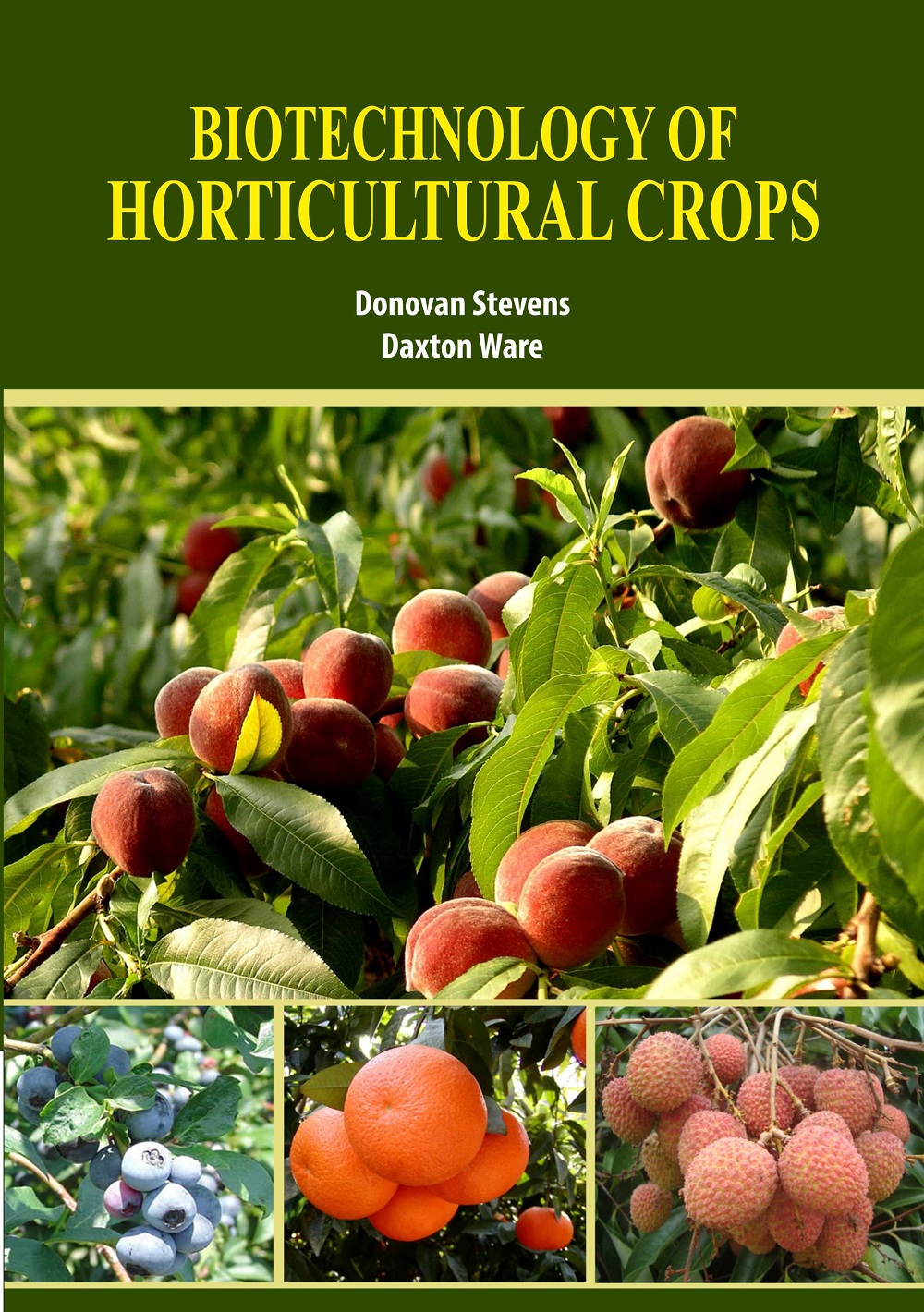Biotechnology of Horticultural Crops Donovan Stevens & Daxton Ware
- ISBN: 9781788821537
- Edition: 1st
- ©Year: 2020
- List Price : 155
About the Book
Horticultural crops are high value crops ensuring maximum returns to the growers with multiple scopes for value addition. Market driven agriculture prescribes quality in every stage of production and total quality management is a challenge to the horticulturist. Present volume on 'Biotechnology of horticultural crops' elaborates the scientific crop management of horticultural crops starting from selection of soil and activities related to production and handling of fresh produces in the field. Scope of value addition, organic farming, protected cultivation, export potential and economic analysis of production are included. The average per capita availability of fruits and vegetables in India is inadequate to meet requirements for nutritional and protective diet of the population. Of the total horticulture production, only 67 % is used for local consumption while 30 % is subjected to post harvest losses, 2 % for export and 0.8 % for processing. There is immense scope for developing horticultural produce market. Changing food habits, life styles and health consciousness and purchasing power have created an unprecedented opportunity for farmers and horticultural entrepreneur. Horticultural research and development which placed India as the second largest producer of fruits and vegetables, largest producer and consumer of cashew nut, tea spices, third largest producer of coconut, forth largest producer and consumer of rubber and sixth largest producer of coffee in the world. Today, as a result synergy between focused research, technological and policy initiatives, high efficiency inputs, horticulture in India, has become a sustainable and viable venture for the small and marginal farmers. Besides, the sector has also started attracting entrepreneurs for taking up horticulture as a commercial venture.Therefore, there is a great scope for the horticulture industrytogrowand flourish.
Contents: 1. Introduction to Biotechnology, 2. Introduction to Horticulture^. Fruit Crops, 4. Vegetable Crops, 5. Flower Crops, 6. Plantation Crops, 7. Spices, 8. Role of Biotechnology in Horticulture Crops.
Donovan Stevens has a master degree in science. He ia an assistant professor in the department of Biotechonolgy and made significant contribution in several areas, especially heterostyled, incompatibility, plant genetics, mutagenesis, horticultural, plant tissue culture and biotechology morphogenesis application of SEM in botanical research, plant asymmetry, plant morphology and anatony, and lately biofule plants jatropha and castor. He is a fellow of over a deozen professional bodies in national and abroad including the following: Felllow of the linnaean society chartered biologist and fellow of the institutes of biology. presently he is an independent board of director of Biotech Laboraties. Daxton Ware is a senior scientist at the national center for agriculture utilization research. After postdoctral research at Northern Rigional Center, he joined Exxon Reserch Center. Daxton ware was editor-in-Chief of the ISBB Special issues in new Biotechnology (2009-2001) and is Editor-in-Chief of Biocatalysts and Agricultural biotechonolgy. He is the precident of international society of biocatalysts and agricultural Biotechnology and is elected fellow of the following many scientific societies: Academy of Microbiology; Society for industrial Microbiology; Oil Chemists Society and international Society of Biocatalysts: Society for industrial Microbiology ; Oil Chemists Society and international society of biocatalysts and Agricultural biotechnology.

